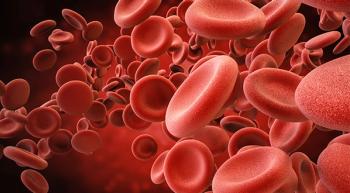Articles by Angelica Welch

The acceptance of next-generation sequencing (NGS) platforms and cell-free DNA (cfDNA) have enabled oncologists to more specifically target genetic mutations in the treatment of patients with non–small cell lung cancer (NSCLC), according to Benjamin P. Levy, MD.

The optimal duration of treatment for patients with HER2-positive breast cancer has been called into question by recent findings from the NSABP B-52, PERSEPHONE, and APT clinical trials.

The FDA has granted a priority review designation to a supplemental new drug application (sNDA) for olaparib (Lynparza) tablets for use as a maintenance therapy in patients with newly-diagnosed, BRCA-positive advanced ovarian cancer who achieved a complete or partial response to standard frontline platinum-based chemotherapy.

The PARP inhibitor olaparib (Lynparza) significantly improved progression-free survival (PFS) as frontline maintenance therapy in women with BRCA-positive advanced ovarian cancer, according to findings reported at the 2018 European Society of Medical Oncology Congress.

The FDA’s Oncologic Drugs Advisory Committee (ODAC) recommended approval of CT-P10, a biosimilar for the monoclonal antibody rituximab (Rituxin), for 3 non-Hodgkin lymphoma indications in a 16-0 vote.

Frontline therapy may be able to be avoided in asymptomatic, young, fit patients with mantle cell lymphoma (MCL), explained Simon Rule, MD, PhD, in a presentation during the 2018 SOHO Annual Meeting. Active treatment in this patient population could potentially lead to unnecessary toxicities, he added.

Two trials have shown that carfilzomib (Kyprolis)-based regimens appeared to be a safe and effective treatments for all patients with multiple myeloma, according to updated data from the ASPIRE and ENDEAVOR trials presented at the 2018 SOHO Annual Meeting.

Next-generation sequencing (NGS) in metastatic non–small cell lung cancer (NSCLC) can save Center for Medicare and Medicaid Services (CMS) payers $1.4 million to $2.1 million.

A wave of novel treatments and FDA approvals has recently swept through the HER2-positive breast cancer space. Kimberly L. Blackwell, MD, oncologist at Duke Cancer Institute, discusses these recent advancements.

Although much success has been seen, 15% of patients with HER2-positive breast cancer will recur. Outcomes for those patients need to be improved, said Sara M. Tolaney, MD.

Maria De Santis, MD, associate clinical professor at the University of Warwick, discussed the findings of KEYNOTE-045 and the future of immunotherapy in the treatment landscape of bladder cancer.

Jennifer Ligibel, MD, discusses Breast Cancer Weight Loss Study and how a weight loss intervention may help patients with breast cancer.

For patients with hepatocellular carcinoma (HCC) who have progressed on sorafenib, regorafenib has shown to be an effective second-line treatment. The FDA has granted the agent a priority review

With more patients diagnosed with breast cancer looking to contralateral prophylactic mastectomy, it is important that surgeons discuss this procedure in-depth so patients can better understand.

Genitourinary cancer expert discusses autoimmune-related adverse events in patients with renal cell carcinoma (RCC).

Denise Yardley discusses the tnAcity study for patients with metastatic triple-negative breast cancer (TNBC), and nab-paclitaxel.






















